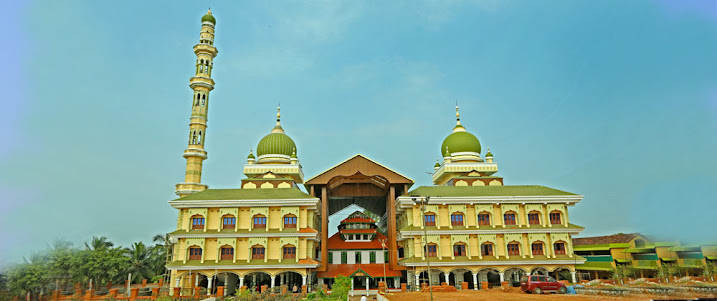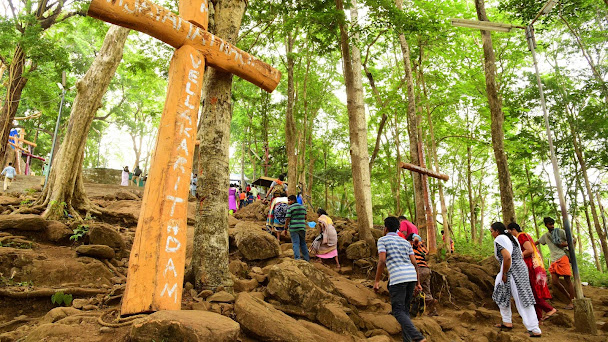Malik Deenar Mosque: An iconic site of Kerala
The shores of Kerala have seen the arrival of people from distinct lands who came for trade, some who came as travellers to know more about the land & many who came to propagate religion. One such person who came to the shores of Kerala was Malik Ibn Dinar & he is said to be the person who brought the way of Islam to India. The Malik Deenar mosque in Kasargod district is a symbol remembering this great soul who brought the word of the Prophet to people in India. His party included 12 associates & they are said to have docked at the port of Kanjiracode, the old name of Kasargod in 624 AD.
The mission of Malik Ibn Deenar & his associates was not just propagation of Islam but also trade. Though this was what they had set out for, the mission soon lost touch with building relations for trade to building relations with the locals & bringing the way of Islam among all. The people of Kasargod & around found the teachings of Prophet relatable to how they perceived life & soon there was a good following for Islam in parts of Kasargode. The presence of Malik Ibn Deenar made all believe in his miracles & soon the Kerala King Cheraman Perumal asked for his attendance in the court. Malik Ibn Deenar is said to have come to the court & talked about Islam with the Perumal who took a liking to Malik. The King was fascinated by the doctrines of Islam & the rules of life mentioned in the Quran that Cheruman Perumal out of reverence to the religion decided to embrace Islam. The decision of Perumal to embrace the religion made all his people also convert to Islam building the first mosque of India in Kodungaloor. Cheraman Perumal is said to have left for Mecca after embracing Islam in search of the Prophet, never to return. Malik Ibn Deenar came years later to where he started his mission to build a small mosque in 642 AD which was called the Jama Masjid. The original mosque is still present within the present structure, the current architecture is based on a reconstruction which was done in the 19th century.
The mosque now has the name of Malik Ibn Deenar based on the prescence of his tomb within the masjid whch is considered to be the most important by the Muslims in Kerala due to its relation with the man who brought the Islam religion to the land. The acceptance of Malik Ibn Deenar & his associates was based on the belief that these were men of God who only believed in speaking the truth. This belief is what helped Malik Ibn Deenar build mosques all over Kerala as the people of the place helped him to do so without any hesitation. The Malik Deenar mosque was originally built using mud, stones & wood which were provided by the local rulers & the construction was similar to how the other 10 masjids were built by Malik Ibn Deenar. The mosque has many wooden carvings seen in other historic mosques of its time with the roof carving of flowers & arabic verses carved on doors. The mimbrah is a simple structure made of wood. The makhbara next to the masjid is said to be of one among the 12 who came on the mission as it is not clear who exactly rests in the grave. Some believe it to be Malik Ibn Deenar himself, some believe it to be his son Malik Ibn Mohammed who was named the first Qasi of the mosque while some believe it to be of Malik Deenar who was one of the associates in the mission. Though it is not clear whose makhbara it is, one certainly knows that whoever prays here finds peace. The cemetery next to the masjid also has graves of many important saints of Islam who found this pious land to be their last resting place.
The mosque today is a grand structure with many additions made along the centuries to accommodate people. The festival of Uroos which is the annual festival here is celebrated during the holy month of Muharrum. The Uroos lasts for a month & is the time to remember the arrival of Malik Ibn Deenar. During the Uroos celebrations, people from all faiths come to see the colors, grandeur & sights of the festival. During the Uroos many cultural & religious events are conducted on the mosque grounds. There are also Annadanam & monetary offerings made to the poor along with visiting the Makbara.
The mosque other than a place to pray is also a site to know Malik Ibn Dinar who was Tabi'in or the companion of the Prophet himself. It is this relation to the Prophet himself that made him acceptable to all then & still brings people from all faiths to the mosque.




Comments
Post a Comment